Taiwan-Netherlands CE Exchange 2024: Pioneering Circular Economy and Sustainable Design Partnerships
September 27, 2024
On September 22, 2024, the ‘Taiwan-Netherlands CE Exchange 2024 event took place at BlueCity Rotterdam. The event was co-organized by Holland Circular Hotpost, the Taiwan Design Research Institute (TDRI), and the Taipei Representative Office in The Netherlands, and brought together representatives from both nations to share strategies, successes, and visions for circularity approaches and collaborative opportunities.

Taiwan and the Netherlands as global innovators
The Netherlands has set a commendable goal to achieve a fully circular economy by 2050, recognising the imperative of collaborative efforts on a global scale. The Netherlands underscores the necessity of regional and international partnerships to realise these ambitions effectively.
Taiwan, equally committed to CE principles, introduced its ‘Taiwan Circular Economy Industry Chain’ in 2023. It focuses on cutting-edge recycling technologies and achieving net-zero carbon emissions across supply chains. Despite geographical distances, Taiwan and the Netherlands share common challenges in resource sustainability, making them natural allies in driving global CE initiatives.
The event commenced with a welcome speech from key representatives such as Jennifer Hsieh, Director Economic Division of the Taipei Representative Office in The Netherlands who emphasised working together on innovative technologies or business models is probably the best way for Taiwan and the Netherlands to move towards achieving circular economy by 2050. “And the collaboration should not only focus on the process at the end of the product life, but already at the beginning of the design phase.”
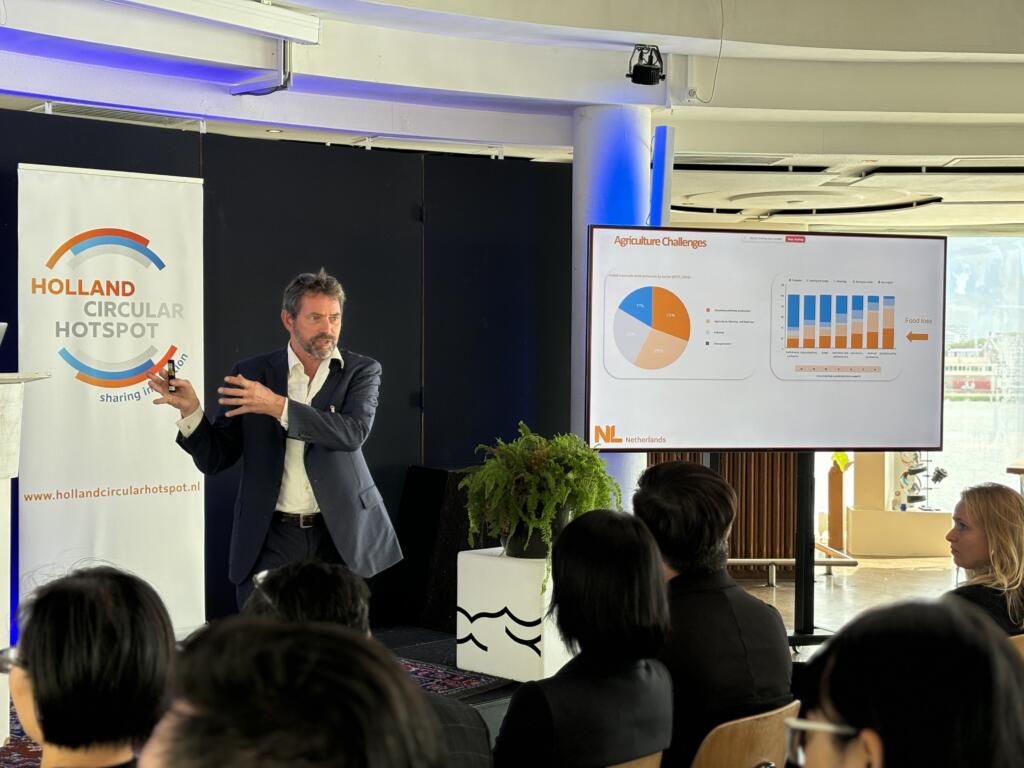
Mrs Ying-Ying Lai from Taiwan’s Ministry for the Environment, and Freek van Eijk, co-chair of the European Circular Economy Stakeholder Platform underscored the significant potential for Taiwan and the Netherlands to lead global circular economy innovation. These efforts aim to connect Europe and Asia through sustainable practices and further market access.
Working together on innovative technologies or business models is probably the best way for Taiwan and the Netherlands to move towards achieving circular economy by 2050.
Jennifer Hsieh, Taipei Representative Office in the Netherlands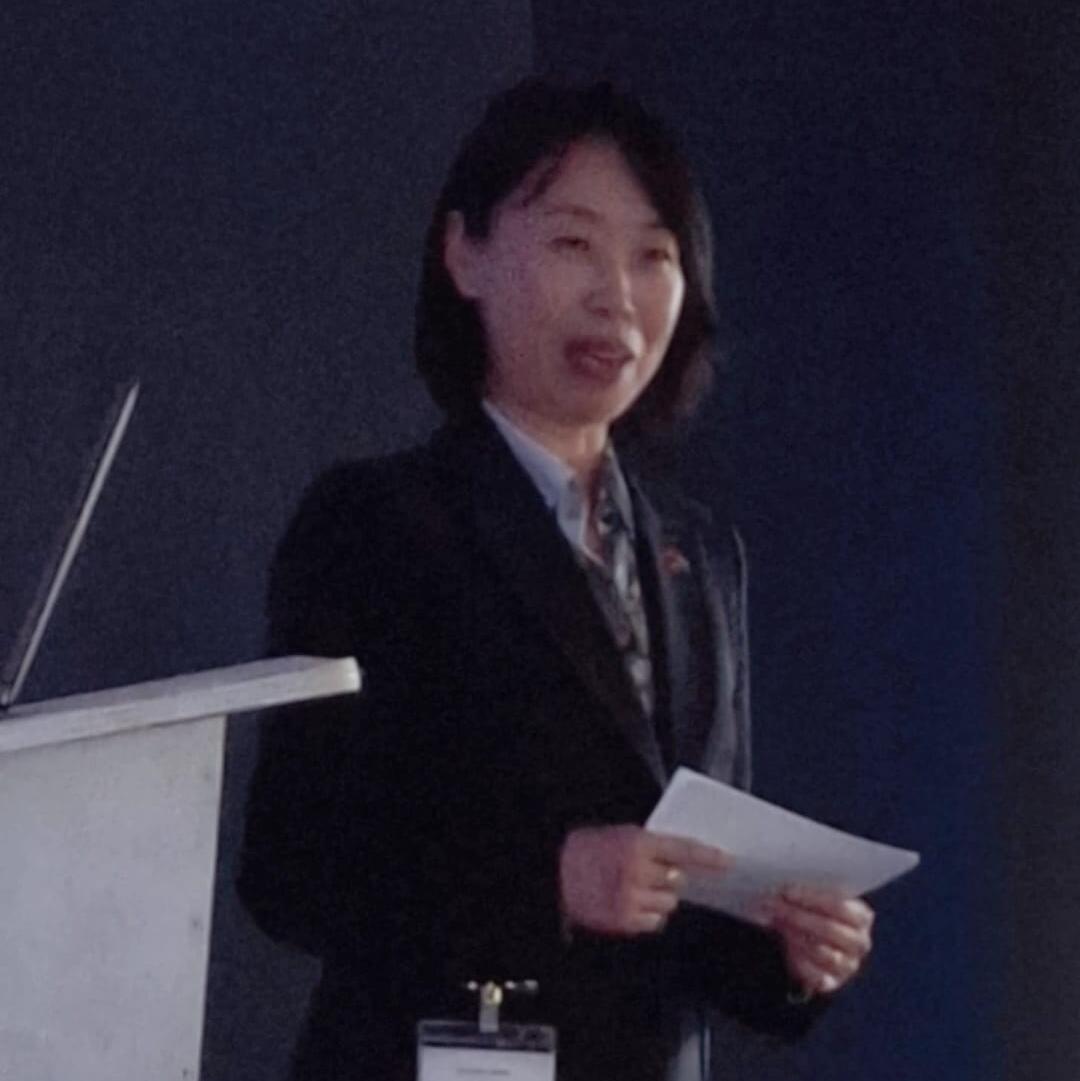
Exploring potential for collaboration on shared challenges
The event explored Taiwan’s role as a manufacturing hub for Dutch and European products and its potential as a gateway for expanding the circular economy in Asia. The Taiwan Design and Research Institute (TDRI) presented its circularity activities, showcasing the practical steps being taken toward a sustainable economy. Vivian Wu, Director of the Industry Foresight Sector at TDRI, and Dr Chia Chen (Jason) Fang from the Industrial Technology Research Institute shared insights on developing circular economy strategies in Taiwan. Dr. Chen mentioned that Taiwan’s technology roadmap toward circular economy focuses on sectors such as Chemical material, Electronic technique, and Biomaterial technology and the aim is to develop low-cost, low-energy recycling technologies and high-value recycled products. Examples of some innovative technologies to capture industrial carbon dioxide and utilize catalysts for chemical conversions were developed. “By selecting stable biomaterials, we developed high-efficiency and low-cost biosynthesis as well as conversion technologies. Through the development of eco-designs/materials, and innovative energy-saving, carbon-reducing recycling processes, we established an efficient recycling system in cooperation with the government and the industrial sector.”
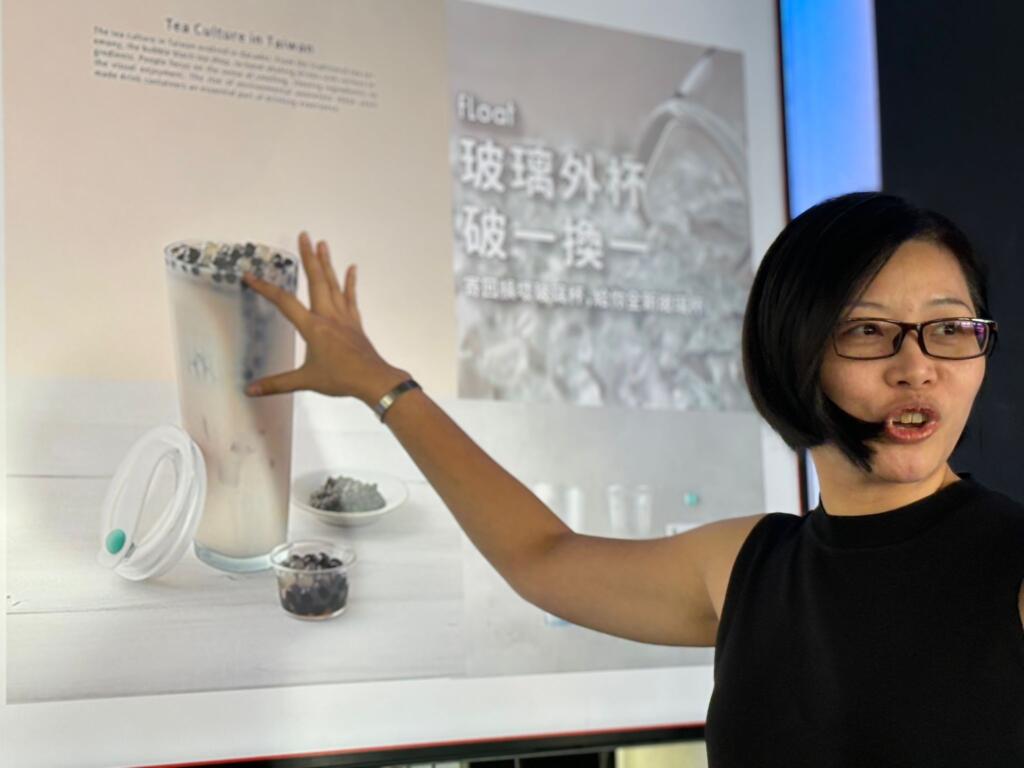
Representatives from the Taiwan Design and Research Institute (TDRI) and Ms Angela Chang, Manager of Industrial Technology Research Institute (ITRI) also presented Taiwan’s approach to CE, sharing successful collaboration models and the case for application of electroplating technology to transform recycled electrolyte into high-purity copper as a respons to the challenge in critical raw materials.
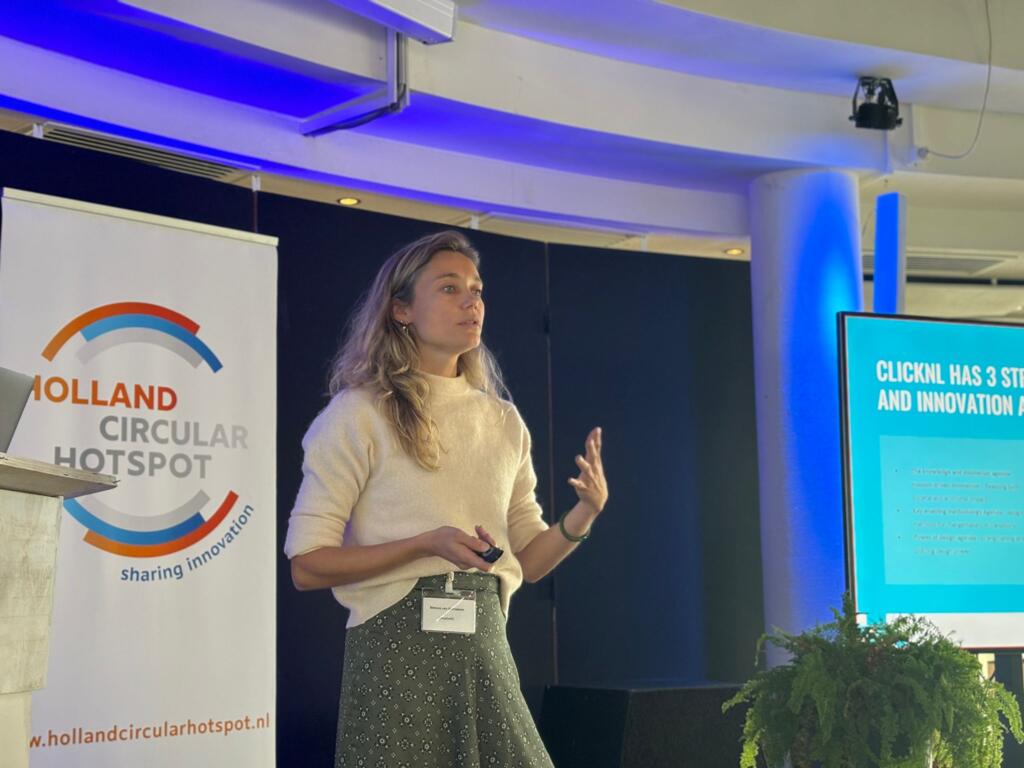
Dutch representatives, including Simone van Bennekom from CreativeNL and Lilian van Hoven from CIRCO, shared the Netherlands’ approach to the circular economy, particularly in the creative sector and design.
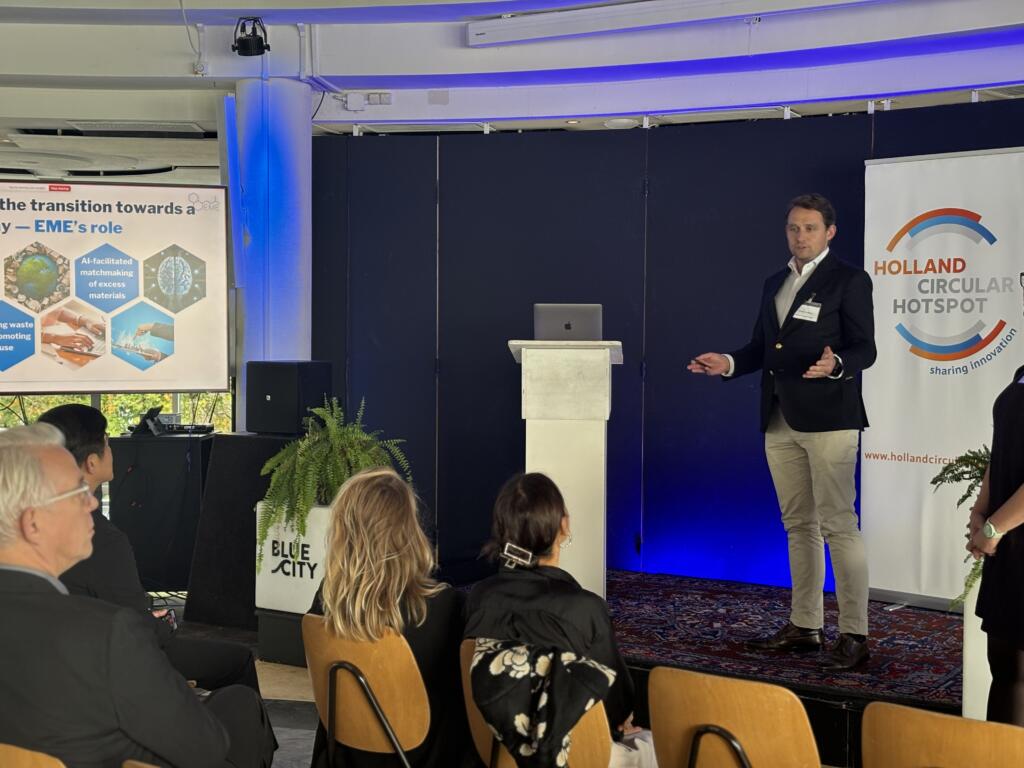
The WASTE Tech. Company shows a successful business model for the application of electroplating technology to transform recycled electrolyte into high-purity copper.
Ms. Angela Chang, Manager of Industrial Technology Research Institute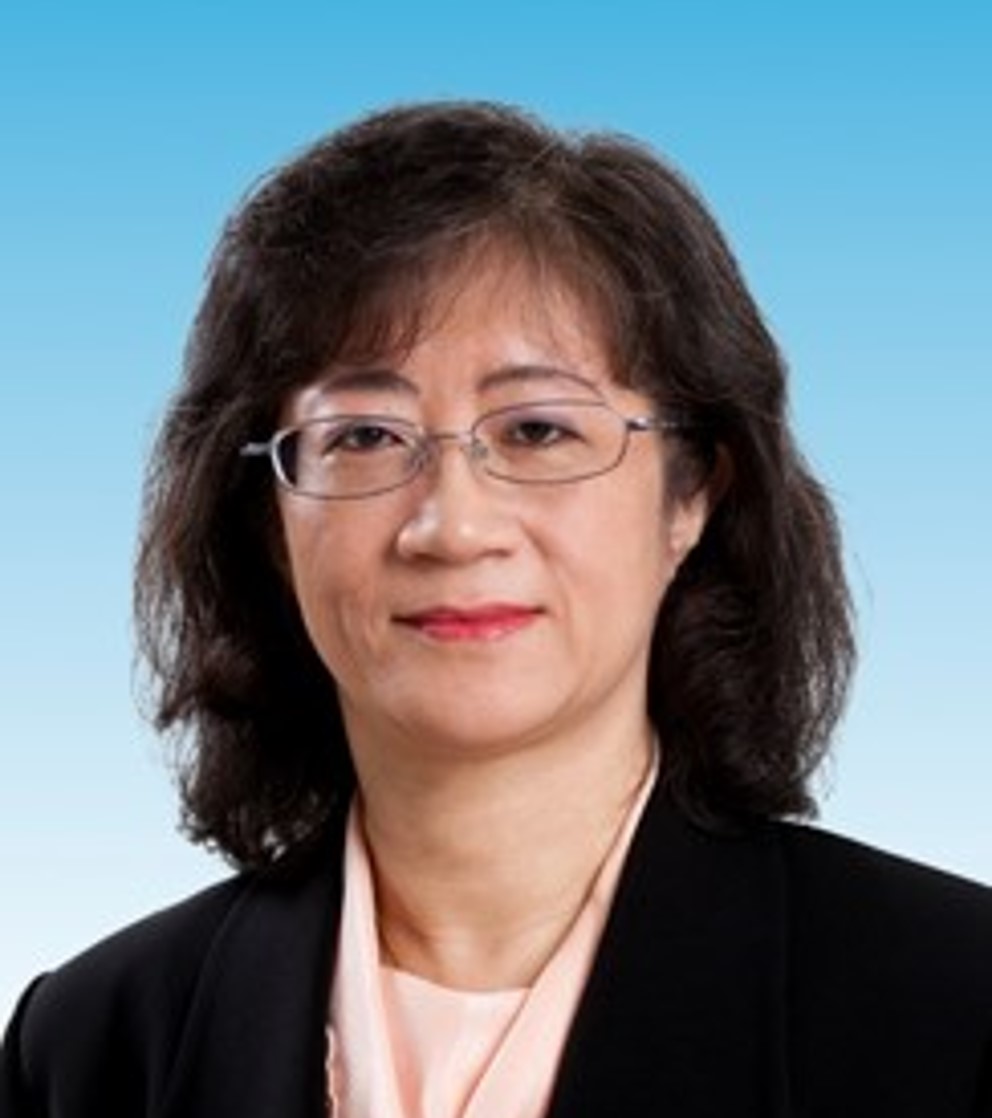
Additionally, the Taiwanese companies and initiatives Spring Pool Glass, The Green Book, and Swancor showcased their circular practices. Dutch innovators Excess Materials Exchange shared the potential for digitization and block chain technology in the approach towards a circular economy. Maud Vastbinder, from the CO2 Performance Ladder highlighted the role circular procurement plays in the transition to a circular economy.
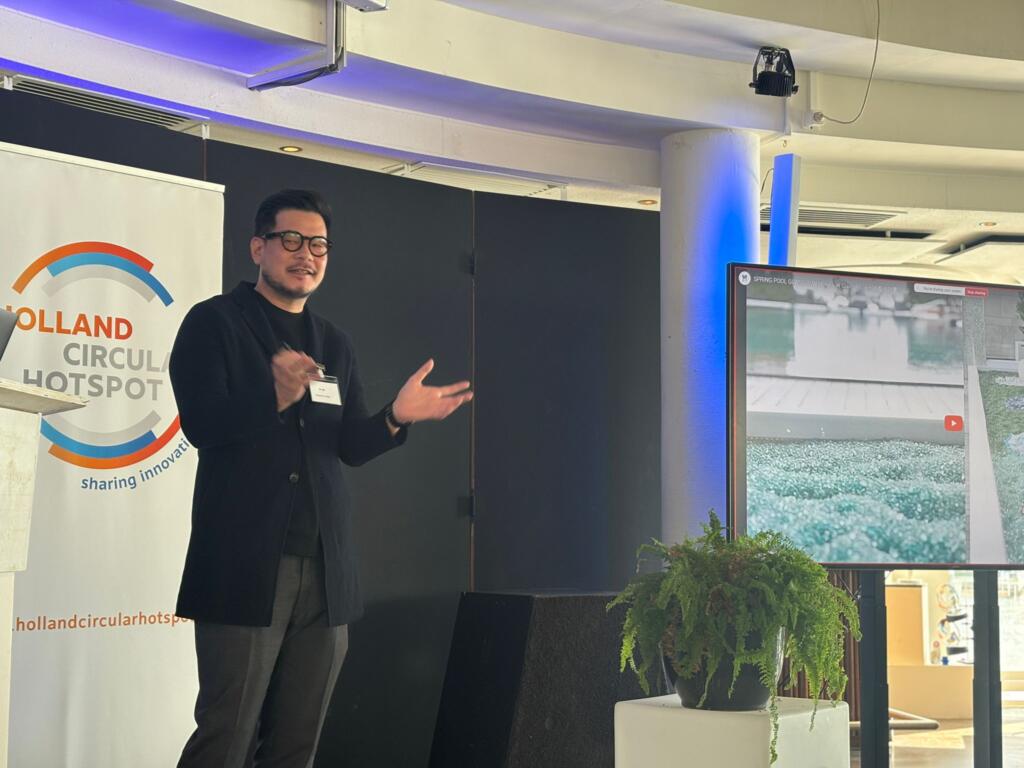
The event concluded with a networking session, allowing participants to forge connections and discuss future collaboration opportunities between Taiwan and the Netherlands in the realm of circular economy. The successful exchange highlighted shared challenges and the potential for cooperative solutions to promote sustainability in both countries.
